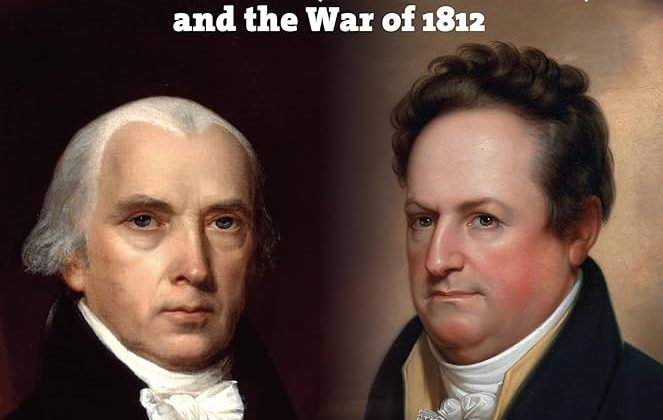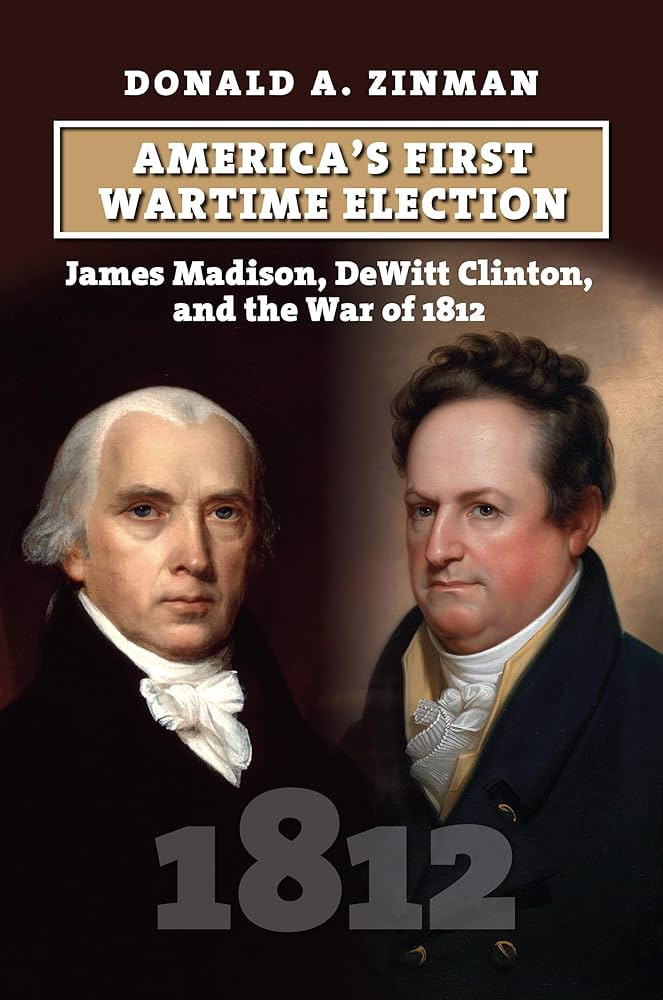

Donald A. Zinman is Professor of Political Science at Grand Valley State University. This interview is based on his new book, America’s First Wartime Election: James Madison, DeWitt Clinton, and the War of 1812 (University Press of Kansas, 2024).
JF: What led you to write America’s First Wartime Election?
DZ: It goes back over 20 years for me. To graduate school, during the first years of the Iraq War. I remember the jingoism, the nationalism and militarism. The not so subtle insinuations from President Bush’s reelection campaign that if you didn’t support him and his war, then you were somehow just not a very good American, or perhaps even a terrorist sympathizer. We had a presidential election in 2004 in that environment , and while it was close, Bush always held the upper hand and prevailed. It is very, very, difficult to defeat an incumbent president in the middle of a war, even if he has a lot of vulnerabilities, as Bush certainly did. For many years I wanted to do this project and see if there is a historical and political pattern to wartime presidents facing reelection, given John Kerry’s defeat in 2004. Madison was the first president to face the voters in the middle of war that was also controversial, and he too prevailed. Just like Abraham Lincoln 52 years later, and then of course Franklin D. Roosevelt. No American politician has yet to crack the code and figure out how to make the case that a wartime president should be denied reelection. In 1812, DeWitt Clinton tried and failed. His efforts to unite disparate anti-Madison factions were clumsy, tardy, incoherent and disorganized.
JF: In 2 sentences, what is the argument of America’s First Wartime Election?
DZ: While President James Madison held a lot vulnerabilities as the U.S. stumbled into the War of 1812, he also held many advantages that favored his reelection, so long as he utilized them. In 1812, momentum mattered in politics, just as it does today.
JF: Why do we need to read America’s First Wartime Election?
DZ: All presidential elections are important. They all tell us something about where the country is and where it is headed. There has never before been a full-length book on the election of 1812. Inevitably, the U.S. will have another presidential election in wartime someday, and the lessons from 1812 remain relevant, given the persistent pattern of wartime presidents having an inherent rally-round-the-flag advantage when they face the voters.
JF: Why and when did you become an American historian?
DZ: I am a political scientist who uses a historical approach in the study of phenomena that impact politics and institutions. Within the American politics field of political science, this subfield is known as American Political Development. My research centers around the American presidency, but I take a very historical approach. For example, my first book, The Heir Apparent Presidency (Kansas Press, 2016) examines the leadership dilemma of presidents like Madison, Martin Van Buren, Harry Truman and others who are heirs apparent to a president of their own party who was considered transformational.
JF: What is your next project?
DZ: For every heir apparent president, there are far more aspiring heirs apparent who never made it in the first place. My research now moves to the vexing question of why it is so hard for these candidates to be elected. Winning the presidency after your own party has held the office for two consecutive terms is a very tall order that requires a lot of advantages that the aspiring candidate may not be able to control on his or her own.
JF: Thanks, Donald!